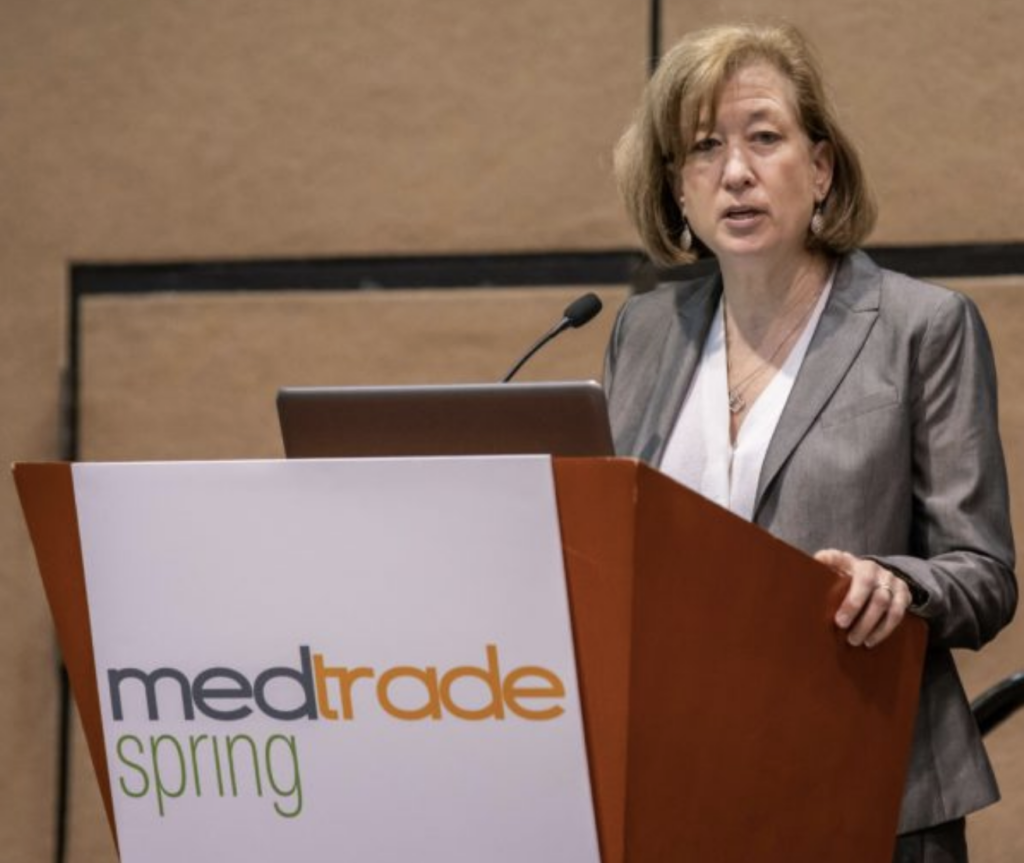AMARILLO, TX – This article discusses the federal laws that address the steps a DME supplier can take when it concludes that a Medicare Advantage Plan (MAP) is taking steps that violate the contract between the supplier and the MAP, or steps that are otherwise unfair/detrimental to the DME supplier and/or its patients.
Summary
There are no federal laws that directly provide relief to a DME supplier when the DME supplier believes that the MAP is violating its contract with the supplier. Medicare provides appeal rights, that a supplier may request, when a MAP makes certain determinations that affect an enrollee’s coverage or benefits. It appears that a contract dispute between a DME supplier and MAP will not implicate Medicare laws unless the contract violation pertains to a Medicare requirement the MAP is obligated to meet.
 Applicable Laws
Applicable Laws
There are no Medicare laws that directly provide a DME supplier with remedies when a MAP violates its contract with the DME supplier. Medicare requires the following provisions to be included in a contract between a MAP and supplier:
- Contracting providers must agree to safeguard beneficiary privacy and confidentiality and assure accuracy of beneficiary health records.
- Contracts must specify a prompt payment requirement, the terms and conditions of which are developed and agreed to by the MAP and its contracted providers and suppliers.
- Contracts must hold Medicare beneficiaries harmless for payment of fees that are the legal obligation of the MAP to fulfill. Such provision will apply but will not be limited to insolvency of the MAP, contract breach, and provider billing.
- Contracts must contain accountability provisions specifying:
- that first tier and downstream entities must comply with Medicare laws, regulations, and CMS instructions, and agree to audits and inspection by CMS and/or its designees and to cooperate, assist, and provide information as requested, and maintain records for a minimum of 10 years;
- that the MAP oversees and is accountable to CMS for any functions and responsibilities described in the MAP regulations; and
- that MAPs that choose to delegate functions must adhere to the delegation requirements – including all provider contract requirements in these delegation requirements – described in the MAP regulations.
- Contracts must specify that providers agree to comply with the MAP’s policies and procedures.[1]
Note that the MAP retains discretion in determining many of the terms of the required contract provisions. For example, while the contract must contain a “prompt payment requirement,” it is up to the MAP and supplier to agree on the terms and conditions of the requirement.
Federal statutes and regulations are more protective of MAP enrollees. Under 42 U.S.C. § 1395w–22(b)(1), a MAP “may not deny, limit, or condition the coverage or provision of benefits … for individuals permitted to be enrolled with the organization … based on any health status–related factor.” CMS is not allowed to approve a MAP if CMS determines that “the design of the plan and its benefits are likely to substantially discourage enrollment by certain MA [i.e., Medicare Advantage] eligible individuals with the organization.”[2]
 The Social Security Act at 42 U.S.C. § 1395w-22(d) also requires the MAP to provide certain levels of access to services, including “immediately required” services provided out-of-network:
The Social Security Act at 42 U.S.C. § 1395w-22(d) also requires the MAP to provide certain levels of access to services, including “immediately required” services provided out-of-network:
(1) In general.—A Medicare+Choice organization offering a Medicare+Choice plan may select the providers from whom the benefits under the plan are provided so long as—
- the organization makes such benefits available and accessible to each individual electing the plan within the plan service area with reasonable promptness and in a manner which assures continuity in the provision of benefits;
- when medically necessary the organization makes such benefits available and accessible 24 hours a day and 7 days a week;
- the plan provides for reimbursement with respect to services which are covered under subparagraphs (A) and (B) and which are provided to such an individual other than through the organization, if—
- the services were not emergency services (…), but (I) the services were medically necessary and immediately required because of an unforeseen illness, injury, or condition, and (II) it was not reasonable given the circumstances to obtain the services through the organization,
- the services were renal dialysis services and were provided other than through the organization because the individual was temporarily out of the plan’s service area, or
- the services are maintenance care or post–stabilization care covered under the guidelines established under paragraph (2);
- the organization provides access to appropriate providers, including credentialed specialists, for medically necessary treatment and services; and
- coverage is provided for emergency services (…) without regard to prior authorization or the emergency care provider’s contractual relationship with the organization.
The Social Security Act, at 42 U.S.C. § 1395w-22(f) requires that the MAP have a grievance process for enrollees:
- Grievance mechanism.—Each Medicare+Choice organization must provide meaningful procedures for hearing and resolving grievances between the organization (including any entity or individual through which the organization provides health care services) and enrollees with Medicare+Choice plans of the organization under this part.
42 C.F.R. § 422.566(a) further provides that–
Each MA organization must have a procedure for making timely organization determinations (in accordance with the requirements of this subpart) regarding the benefits an enrollee is entitled to receive under an MA plan, including basic benefits as described under § 422.100(c)(1) and mandatory and optional supplemental benefits as described under § 422.102, and the amount, if any, that the enrollee is required to pay for a health service.
42 C.F.R. § 422566(b) defines “organization determinations” to include the following:
Actions that are organization determinations. An organization determination is any determination made by an MA organization with respect to any of the following:
(1) Payment for temporarily out of the area renal dialysis services, emergency services, post-stabilization care, or urgently needed services.
(2) Payment for any other health services furnished by a provider other than the MA organization that the enrollee believes –
(i) Are covered under Medicare; or
(ii) If not covered under Medicare, should have been furnished, arranged for, or reimbursed by the MA organization.
(3) The MA organization’s refusal to provide or pay for services, in whole or in part, including the type or level of services, that the enrollee believes should be furnished or arranged for by the MA organization.
(4) Reduction, or premature discontinuation, of a previously authorized ongoing course of treatment.
(5) Failure of the MA organization to approve, furnish, arrange for, or provide payment for health care services in a timely manner, or to provide the enrollee with timely notice of an adverse determination, such that a delay would adversely affect the health of the enrollee.
42 C.F.R. § 422.566(c) provides that “Any provider that furnishes, or intends to furnish, services to the enrollee” may request an organization determination. A party unhappy with the outcome of an organization determination may request that the determination be reconsidered within 60 days from the date of notice of the organization determination.[3] A party unhappy with the reconsideration (excluding the MAP) may file a request for a hearing within 60 days of receipt of the adverse notice of reconsideration determination.[4] A party unhappy with the outcome of the ALJ hearing may request a review by the Medicare Appeals Council within 60 days.[5] A party unhappy with the decision of the Medicare Appeals Council may request judicial review within 60 days provided the amount in controversy is at least $1,760 (for 2021 and 2022).[6]
AAHOMECARE’S EDUCATIONAL WEBINAR
Federal Law Governing Medicare Advantage Plans and Medicaid Managed Care Plans
Presented by: Jeffrey S. Baird, Esq., Brown & Fortunato
Tuesday, January 25, 2021
1:30-2:30 p.m. CENTRAL TIME
Medicare Advantage Plans (MAPs) and Medicaid Managed Care Plans (MMCPs) have become an important part of the lives of DME suppliers. Approximately 70% of Medicaid patients are covered by MMCPs, while approximately 39% of Medicare beneficiaries are covered by MAPs. These percentages will continue to increase. Working with MAPs/MMCPs is frustrating for suppliers. MAPs/MMCPs are heavy handed on a number of fronts. And so DME suppliers quite naturally ask what the federal laws are that govern MAPs/MMCPs. On the one hand, federal laws governing MAPs/MMCPs are quite extensive.
However, only a small portion of the federal laws pertain to the relationship between the MAPs/MMCPs and the providers/suppliers that serve the patients covered by the plans. Much of the law is aimed to (i) protect covered lives and (ii) set minimum requirements for coverage, networks, complex reimbursement mechanisms. This program will discuss the federal laws that govern MAPs and MMCPs. Equally as important, this law will discuss how these laws affect DME suppliers as they provide services to patients covered by MAPs and MMCPs.
Register for Federal Law Governing Medicare Advantage Plans and Medicaid Managed Care Plans on Tuesday, November 9, 2021, 1:30-2:30 p.m. CT, with Jeffrey S. Baird, Esq. of Brown & Fortunato.
Members: $99
Non-Members: $129
Jeffrey S. Baird, JD, is chairman of the Health Care Group at Brown & Fortunato, a law firm with a national health care practice based in Texas. He represents pharmacies, infusion companies, HME companies, manufacturers, and other health care providers throughout the United States. Baird is Board Certified in Health Law by the Texas Board of Legal Specialization and can be reached at (806) 345-6320 or [email protected].
Cara C. Bachenheimer, JD, is an attorney with the Health Care Group at Brown & Fortunato, a law firm with a national health care practice based in Texas, where she heads up the firm’s Government Affairs Practice. Bachenheimer’s practice focuses on federal lobbying activities with Congress, the Administration, and federal regulatory agencies, such as CMS, FDA, IRS, and FAA. She can be reached at (806) 345-6321 or [email protected].
[1] Centers for Medicare & Medicaid Services, Internet-Only Manual 100-16, Ch. 11, § 100.4.
[2] 42 U.S.C. § 1395w-22(b)(1). Section 201(b) of Public Law 108-173 (stating that “any reference to ‘Medicare+Choice’ is deemed a reference to ‘Medicare Advantage’ and ‘MA.’”).
[3] 42 C.F.R. § 422.578; See also, 42 C.F.R. § 422.582(b) (providing the “timeframe for filing a request”).
[4] 42 C.F.R. § 422.596; See also, 42 C.F.R. § 422.602(b) (indicating “when to file a request”).
[5] 42 C.F.R. § 422.608.
[6] 42 C.F.R. § 422.612; See also, Centers for Medicare & Medicaid Services, Appeals Level 5: Federal district court judicial review, available online at https://www.medicare.gov/claims-appeals/file-an-appeal/appeals-level-5-federal-district-court-judicial-review.


